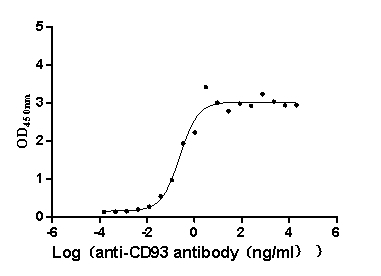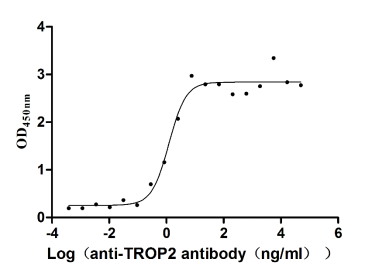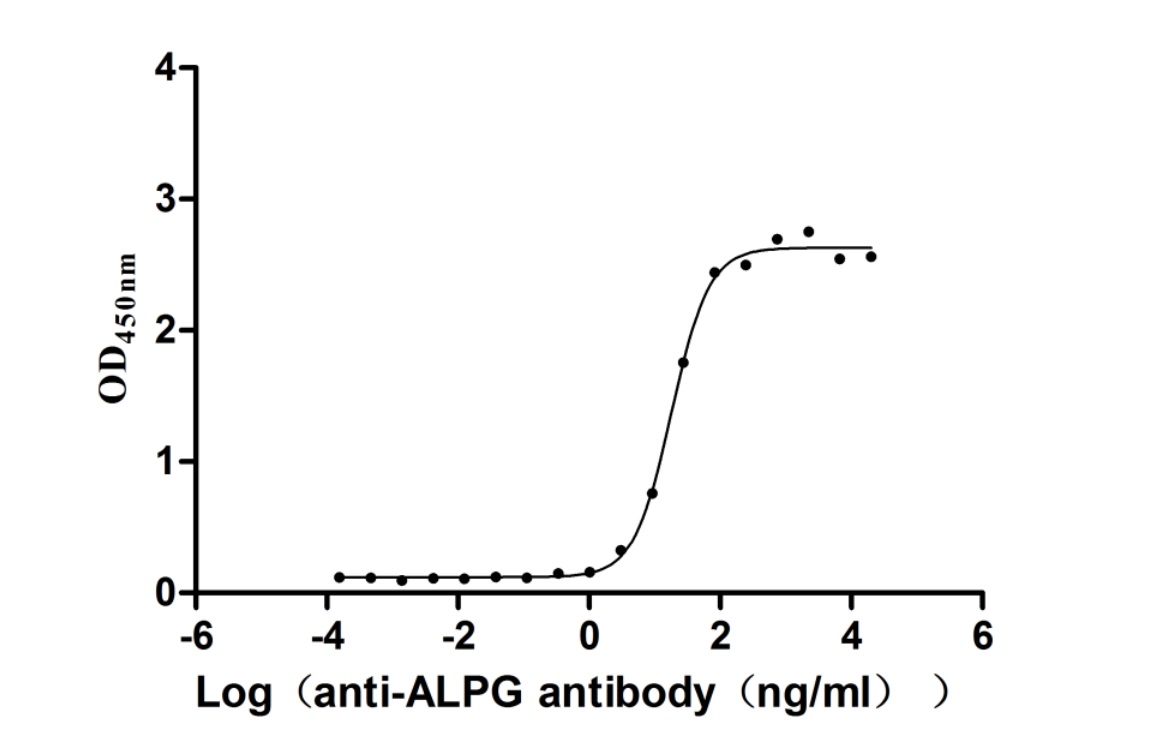Recombinant Rat Oncostatin-M (Osm)
In Stock-
中文名稱:大鼠Osm重組蛋白
-
貨號:CSB-EP723970RAb0
-
規(guī)格:¥1836
-
圖片:
-
其他:
產(chǎn)品詳情
-
純度:Greater than 85% as determined by SDS-PAGE.
-
基因名:
-
Uniprot No.:
-
別名:Osm; Oncostatin-M; OSM
-
種屬:Rattus norvegicus (Rat)
-
蛋白長度:Full Length of Mature Protein
-
來源:E.coli
-
分子量:26.2 kDa
-
表達區(qū)域:26-208aa
-
氨基酸序列KRGCSSSSPKLLSQLKSQANITGNTASLLEPYILHQNLNTLTLRAACTEHPVAFPSEDMLRQLSKPDFLSTVHATLGRVWHQLGAFRQQFPKIQDFPELERARQNIQGIRNNVYCMARLLHPPLEIPEPTQADSGTSRPTTTAPGIFQIKIDSCRFLWGYHRFMGSVGRVFEEWGDGSRRSRR
Note: The complete sequence may include tag sequence, target protein sequence, linker sequence and extra sequence that is translated with the protein sequence for the purpose(s) of secretion, stability, solubility, etc.
If the exact amino acid sequence of this recombinant protein is critical to your application, please explicitly request the full and complete sequence of this protein before ordering. -
蛋白標簽:N-terminal 10xHis-tagged
-
產(chǎn)品提供形式:Liquid or Lyophilized powder
Note: We will preferentially ship the format that we have in stock, however, if you have any special requirement for the format, please remark your requirement when placing the order, we will prepare according to your demand. -
緩沖液:Tris-based buffer,50% glycerol
-
儲存條件:Store at -20°C/-80°C upon receipt, aliquoting is necessary for mutiple use. Avoid repeated freeze-thaw cycles.
-
保質期:The shelf life is related to many factors, storage state, buffer ingredients, storage temperature and the stability of the protein itself.
Generally, the shelf life of liquid form is 6 months at -20°C/-80°C. The shelf life of lyophilized form is 12 months at -20°C/-80°C. -
貨期:3-7 business days
-
注意事項:Repeated freezing and thawing is not recommended. Store working aliquots at 4°C for up to one week.
-
Datasheet & COA:Please contact us to get it.
相關產(chǎn)品
靶點詳情
-
功能:Growth regulator. Inhibits the proliferation of a number of tumor cell lines. It regulates cytokine production, including IL-6, G-CSF and GM-CSF from endothelial cells. Uses only type II OSM receptor (heterodimers composed of OSMR and IL6ST). Involved in the maturation of fetal hepatocytes, thereby promoting liver development and regeneration.
-
基因功能參考文獻:
- OSM is a key mediator for inducing differentiation of OC15-5 cells into hepatocytes PMID: 15743783
- In the immortalized mouse and primary cultured proliferative rat hepatocytes, treatment with OSM markedly increased mRNA and protein of claudin-2 together with formation of developed networks of TJ strands. PMID: 17434483
- OSM may not only play a role in the regulation of Sertoli cell proliferation and the initiation of spermatogenesis but may also play a role in the regulation of Leydig cell progenitor formation. PMID: 17996055
- Results indicate that osteosarcoma cells stably producing OSM do not develop resistance to this cytokine and thus could be a valuable new tool to study the anti-cancer effect of OSM in vivo. PMID: 19168167
-
亞細胞定位:Secreted.
-
蛋白家族:LIF/OSM family
-
組織特異性:Widely expressed. Expressed at higher levels in liver, skin and spleen.
-
數(shù)據(jù)庫鏈接:
Most popular with customers
-
Recombinant Human Programmed cell death protein 1 (PDCD1), partial (Active)
Express system: Mammalian cell
Species: Homo sapiens (Human)
-
Recombinant Human Heat-stable enterotoxin receptor (GUCY2C), partial (Active)
Express system: Mammalian cell
Species: Homo sapiens (Human)
-
Recombinant Human C-X-C chemokine receptor type 4 (CXCR4)-VLPs (Active)
Express system: Mammalian cell
Species: Homo sapiens (Human)
-
Recombinant Human Pancreatic adenocarcinoma up-regulated factor (ZG16B) (Active)
Express system: Mammalian cell
Species: Homo sapiens (Human)
-
Recombinant Human Claudin-6 (CLDN6)-VLPs (Active)
Express system: Mammalian cell
Species: Homo sapiens (Human)
-
Recombinant Macaca fascicularis CD93 molecule (CD93), partial (Active)
Express system: Mammalian cell
Species: Macaca fascicularis (Crab-eating macaque) (Cynomolgus monkey)
-
Recombinant Human Tumor-associated calcium signal transducer 2 (TACSTD2), partial (Active)
Express system: Mammalian cell
Species: Homo sapiens (Human)
-
Recombinant Human Alkaline phosphatase, germ cell type (ALPG) (Active)
Express system: Mammalian cell
Species: Homo sapiens (Human)

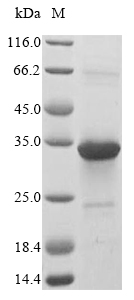

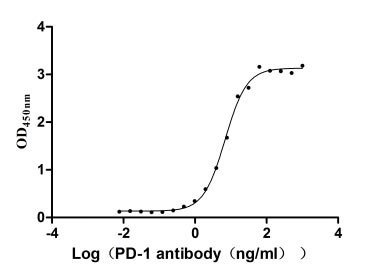
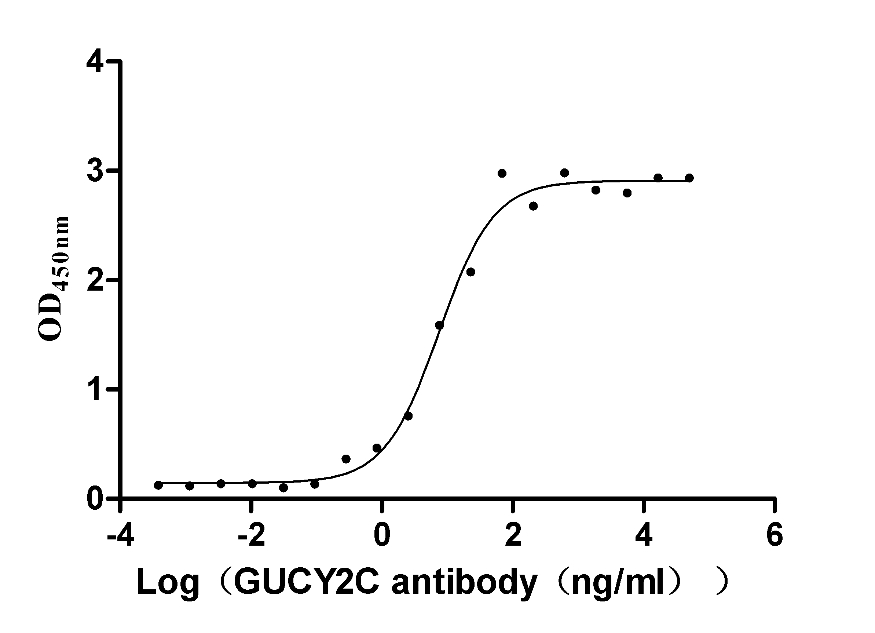
-AC1.jpg)
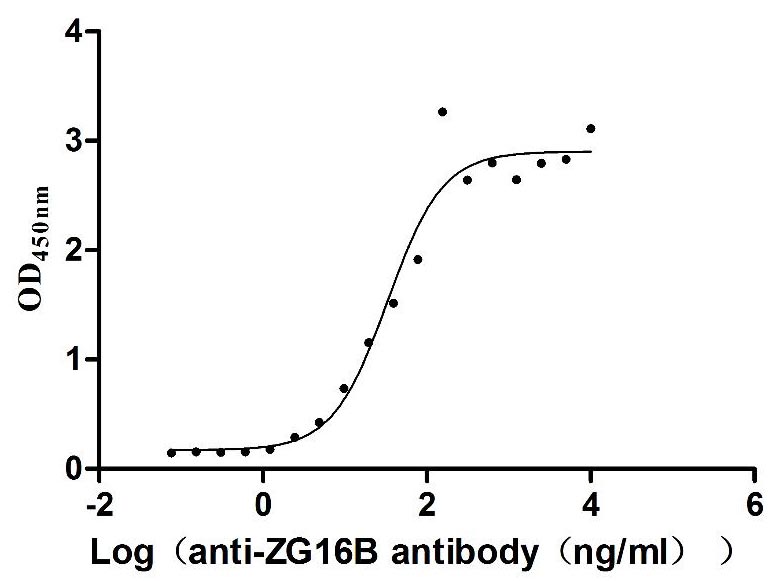
-AC1.jpg)
